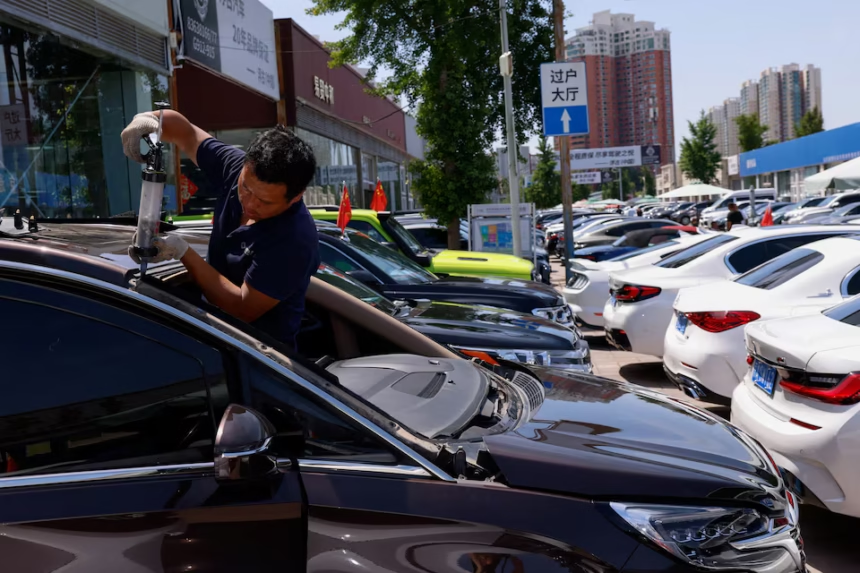BEIJING – China’s car industry has been boosting its sales numbers by exporting brand-new, zero-mileage cars as “used” since 2019. Local governments across the country have supported this approach to help reach economic goals set by Beijing, even as state media have criticised the practice at home.
Automakers and dealers register new vehicles straight from the factory with local plates, then quickly reclassify them as used before shipping them overseas. These vehicles, sometimes called “zero-mileage” cars, have never been driven but are sold as used to overseas markets such as Russia, Central Asia and the Middle East.
According to Reuters, this allows companies to report higher sales and move stock that might otherwise sit unsold in China.
The practice came under the spotlight when the head of Great Wall Motor spoke out against selling these cars domestically. Soon after, the People’s Daily, a major state newspaper, called for stricter controls, blaming fake used cars for falling prices during a fierce price war. Despite this, local authorities have continued to encourage exports of these cars as part of their economic strategies.
Local Government Involvement in China’s
Reports and policy documents reveal that at least 20 Chinese provinces and cities, including Guangdong and Sichuan, have supported the export of zero-mileage used cars. Efforts to make the process easier include issuing extra export licences, providing tax incentives, building export infrastructure, and organising events to attract traders.
Typically, an exporter buys a new car from a manufacturer or dealership, registers it as a used car, and then ships it abroad. The car gets counted as sold, helping the automaker’s figures and the local government’s economic performance.
This approach fits China’s system, where local leaders’ careers depend on hitting economic growth targets. By encouraging these deals, local governments can quickly inflate their GDP numbers, as both the purchase and sale of each car get counted.
Some industry voices have backed the practice. Cui Dongshu from the China Passenger Car Association said it helps carmakers reach markets that might otherwise be off-limits due to rising trade barriers, and meets demand in countries where Chinese brands aren’t yet established.
By 2024, an estimated 90% of China’s exported used vehicles were unused cars. China exported over six million vehicles in 2023, with about 6% labelled as zero-mileage used cars. Most of these are petrol-powered, less popular at home, but some electric cars get exported too, often with a healthy profit.
Countries Banning Cars
Chongqing-based Huanyu Auto, which entered the export business in 2022, reported earning 10,000 yuan (about $1,400) in profit per electric car sold to Central Asia. However, not everyone is happy. Critics warn that shipping new cars as used could damage the reputation of Chinese brands abroad and cause investors to doubt official sales figures.
Other countries are wary. Some fear these imports will hurt local car dealers and confuse buyers. Russia, for example, banned the import of zero-mileage used cars from brands already sold officially in the country. Market regulators in places like Jordan have started changing rules to make it harder for such cars to qualify as used.
The market is also getting crowded. More traders and even social media personalities are joining in, making profits slimmer and creating confusion. As one seller put it, people who once sold vases or wine are now shipping cars.
As China looks for new export markets amid rising tariffs and barriers from countries like the US, the debate around exporting new cars as used continues to grow, raising questions about the long-term impact on the industry’s reputation and the global market.














